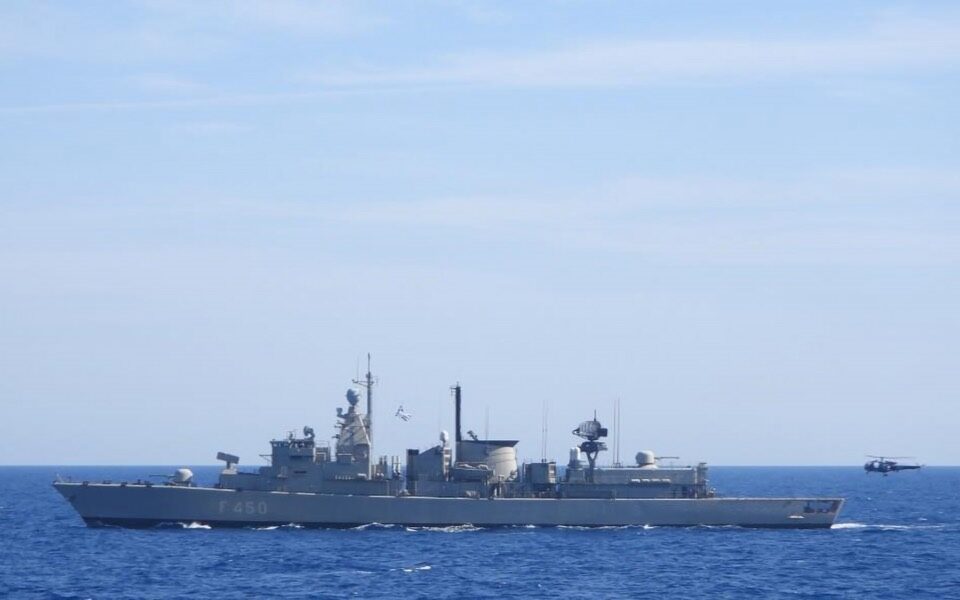Freedom of shipping in the Red Sea: The Greek contribution

A multipolar world, subject to new predominant threats and global divisions, arises from the distribution of military and economic power and new agreements for providing military facilities to foreign countries. The freedom of sea lines of communication (SLOCs) is of vital importance for the world’s trade and security providers in a sea area which covers 70% of the Earth and the transport of 85-90% of world trade.
One of the most critical SLOCs is the southern approach through the Red Sea up to Suez (around 1,450 nautical miles). The proximity to the coasts of Yemen and the island of Socotra (with Yemen’s disputed sovereignty status), as well as to the coasts of Egypt, Sudan, Eritrea, Djibouti, Somalia and Saudi Arabia, composes the security environment of the region and the geopolitical competition for power and influence of the great powers, neighboring countries and the United Arab Emirates. To this end, there is the presence of foreign land forces (France, UAE, UK, USA, PRC) and naval forces (multinational Combined Task Forces 150 [CTF-150] and 153 [CTF 153], France, USA, UK, Japan, India, Spain, PRC, European Union Naval Force Operation Atalanta etc) in the territories and waters of some of these countries. In addition, the two most important sea passage points, Suez and the Bab al-Mandab Strait, as well as Socotra Il, portray the maritime domain for security of this high-value sea line and chokepoints. Because Yemen’s Ansar Allah/Houthi rebels are attacking merchant ships under the pretext of responding to the war in Gaza, but apparently in pursuit of geopolitical gains, this vital sea route has become extremely dangerous for all ships, resulting in most shipping companies modifying their voyages via South Africa’s Cape of Good Hope, with the consequent increase in the cost of each cargo and what this entails for the international and domestic economy of states. The US call for the formation of the naval coalition Prosperity Guardian, in order to protect the lives of crews, the safety of ships and the smooth flow of sea trade through the wider region of the Red Sea – Horn of Africa – Gulf of Aden – Western Indian Ocean, was rightly accepted by Greece, as a leader in global shipping, with the participation of a frigate (FFGH) in the coalition and the dispatch of staff officers to the Headquarters of CTF 153 in Bahrain. The Hellenic Navy has participated in similar operations in the past, drawing planning and operations experience from its participation in Sharp Guard 1993-1996, Enduring Freedom 2002-2003, the United Nations Interim Force In Lebanon (UNIFIL) since 2006, SOPHIA/IRINI since 2015, as well as in European Operation Atalanta since 12/2008 with its inception and with the first operational commander at sea, a Greek naval officer. It is worth mentioning the decisive participation of the Hellenic Navy in humanitarian naval operations in war zones.
The US call for the formation of the naval coalition Prosperity Guardian, in order to protect the lives of crews, the safety of ships and the smooth flow of sea trade, was rightly accepted by Greece
The inaction of the UN Security Council (UNSC) is served by the attitude of its two permanent members (PRC and Russia). The only action currently mentioned is the announcement SC/15513 of the SC/UN on December 1, on the occasion of the attack on the MV Galaxy Leader ship, in which they “recalled the importance of enhancing international and regional cooperation to counter threats to peace and security in the region.”
Consequently, UNSC inaction, and with a nonresolution, allows a rebel faction to jeopardize the prosperity of the international community and the world’s economy. For the PRC, despite the maritime Silk Road, the existence and anchoring of Chinese forces stationed in the region with further aspirations to expand their permanent presence is of paramount importance. Russia is pursuing two strategic objectives: docking in the region near the Horn of Africa, as well as the return of Western high-tech companies and infrastructure to promote the value of the Northeast Passage (NEP) region, which includes the Northern Sea Route, 3,500 nautical miles long, thus abridging the distance to Europe from Yokohama to Rotterdam with a route via the Cape of Good Hope (14,448 nm), via the Suez Canal (11,133 nm) and via NEP (7,010 nm), but lacks timetable reliability due to weather and climatic conditions.
In the new era, alliances and coalitions are becoming the key realities to counter the traditional and emerging threats to international security.
Panagiotis Chinofotis is a retired Hellenic Navy admiral, former chief of the Hellenic National Defense General Staff and former state deputy.





